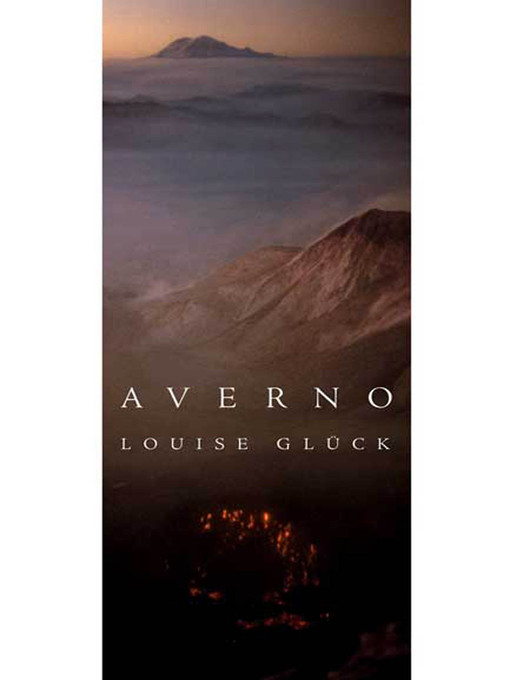A ravishing collection by Louise Glück, winner of the Nobel Prize in Literature
Averno is a small crater lake in southern , regarded by the ancient Romans as the entrance to the underworld. That place gives its name to Louise Glück's eleventh collection: in a landscape turned irretrievably to winter, it is the only source of heat and light, a gate or passageway that invites traffic between worlds while at the same time opposing their reconciliation. Averno is an extended lamentation, its long, restless poems no less spellbinding for being without plot or hope, no less ravishing for being savage, grief-stricken. What Averno provides is not a map to a point of arrival or departure, but a diagram of where we are, the harrowing, enduring presence.
Averno is a 2006 National Book Award Finalist for Poetry.
- Available now
- New E-book Additions
- New kids and teen additions
- Most popular
- Best of the Library Writers Project
- Black Pacific Northwest Collection
- Manga from VIZ Media
- Ukrainian e-books
- See all ebooks collections
- New Audiobook Additions
- Most popular
- Available now
- New kids and teen additions
- LGBTQ Young Adult Audiobooks
- Family-Friendly Audiobooks 🎧
- Always Available Audiobooks
- Audiobooks Read by Celebrities
- See all audiobooks collections

